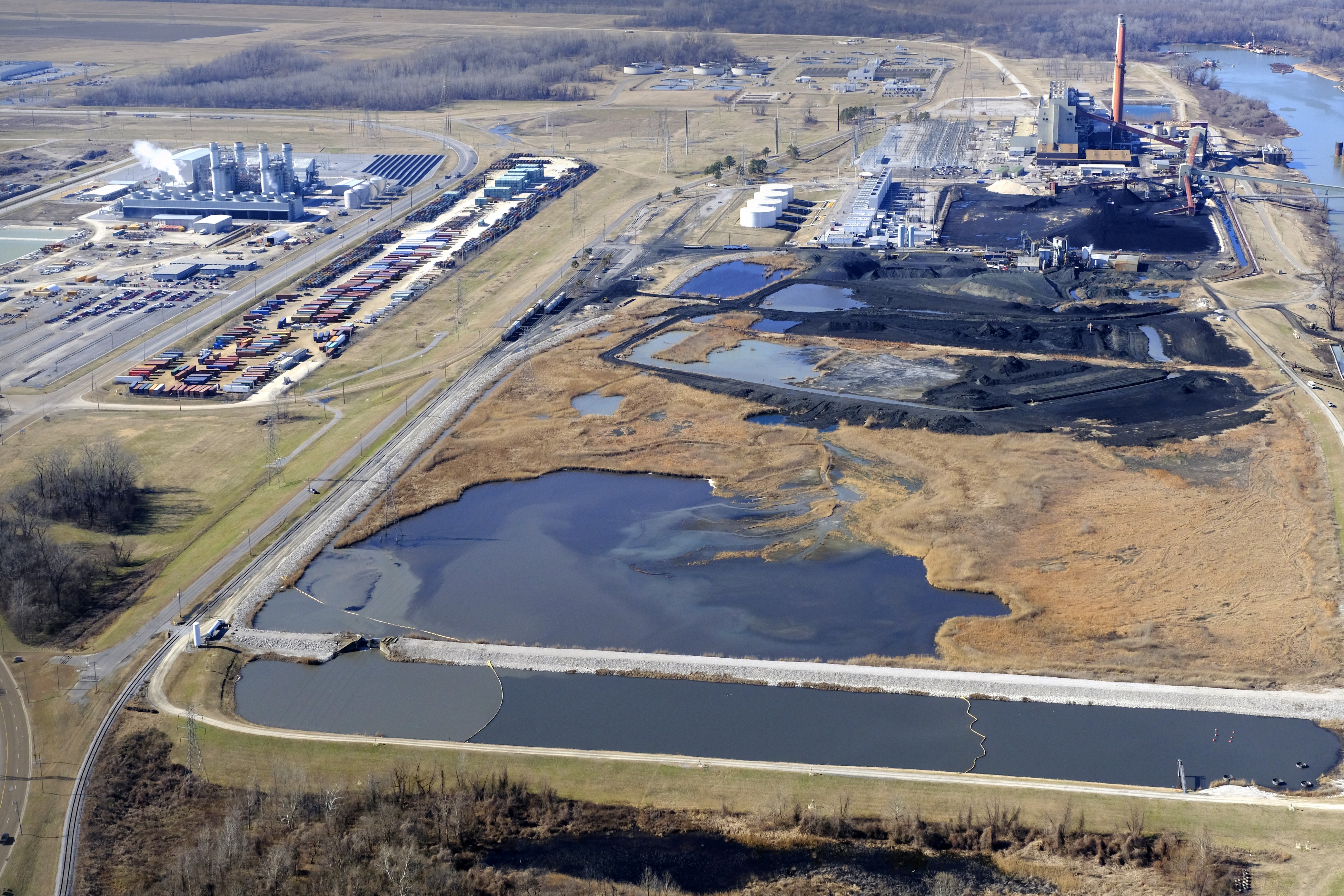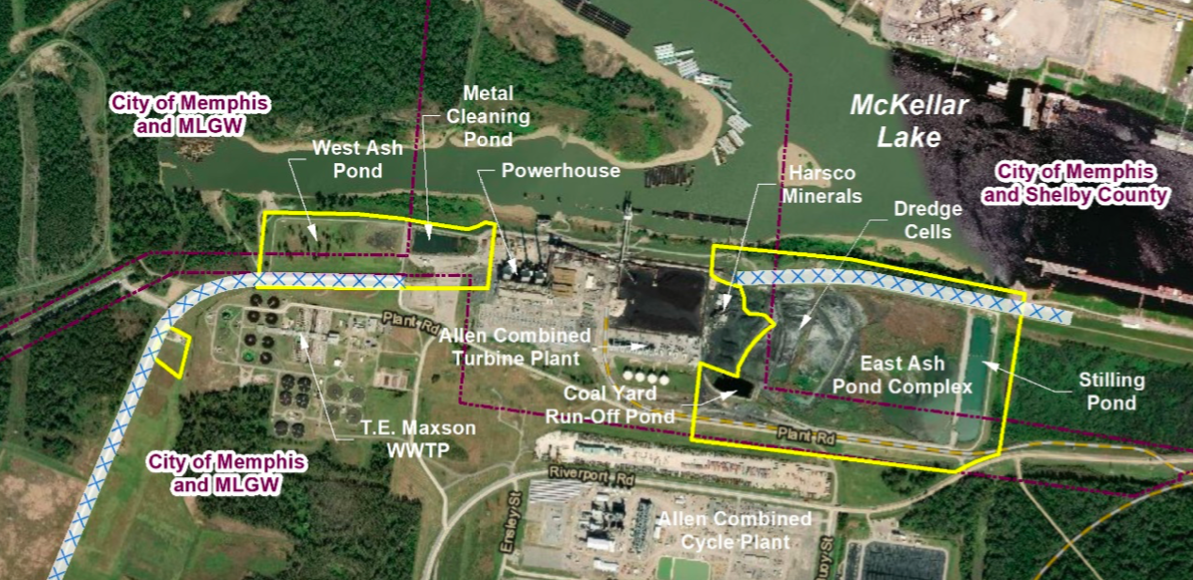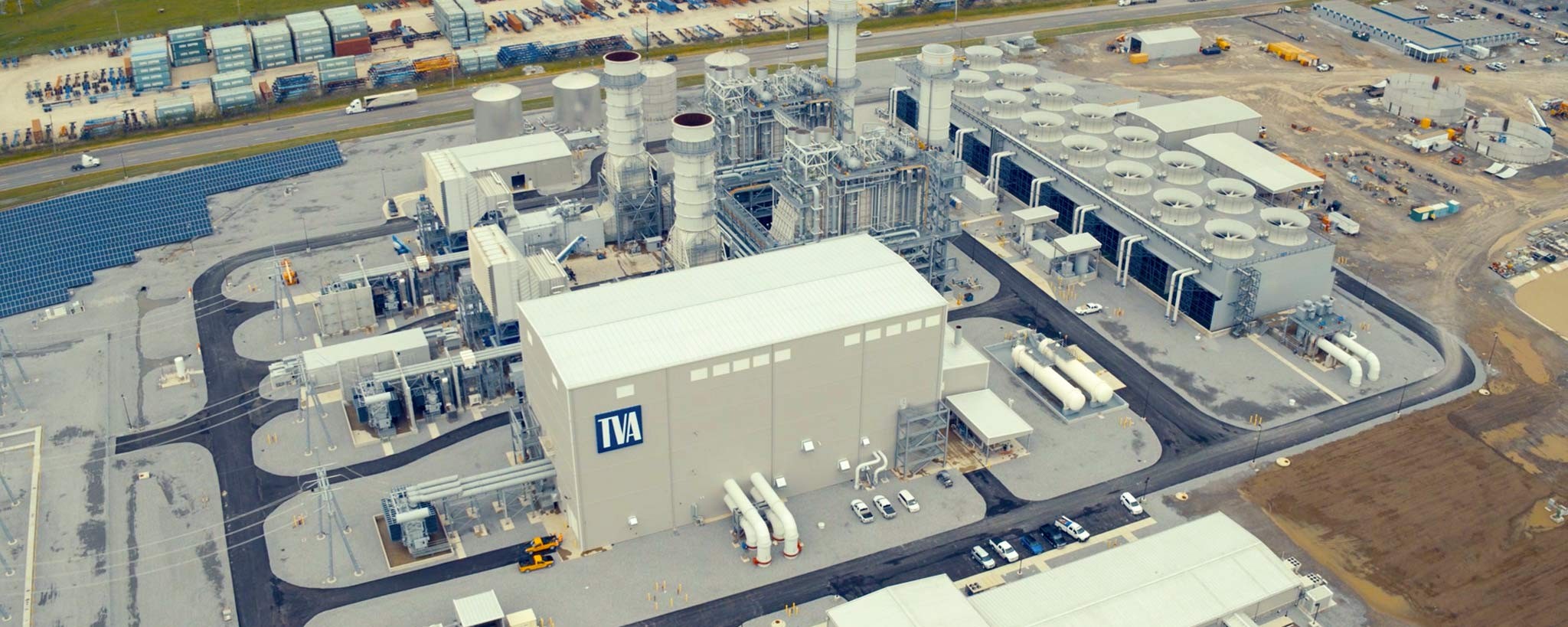 Southern Environmental Law Center
Southern Environmental Law Center
An aerial shot shows the massive east ash pond at the Allen Fossil Plant.
The Tennessee Valley Authority (TVA) has identified its preferred plan to remove the toxic coal ash from the now-idled Allen Fossil Plant, the first step down a long road to return the site to another functional use.
In 2017, the TVA found high levels of arsenic and other toxins in ground water close to ponds storing the coal ash. Arsenic levels were more than 300 times higher than federal drinking water standards.
The discovery kicked off a years-long, sometimes-contentious series of events that TVA officials hope will end in 10 years. That’s how long they say it will take to finally remove the ash now sitting on nearly 120 acres.
The 500-acre site is about five miles southwest of Downtown Memphis, on the Southern bank of McKellar Lake. The plant had three units producing a max of 741 megawatts of power, enough to power 500,000 homes, according to a figure from Duke Energy.
While in use, the plant consumed 7,200 tons of coal per day. After it was burned to make electricity, that coal left behind about 85,000 tons of ash every year. TVA funneled that ash into two huge ponds — the East Ash Pond and West Ash Pond — on the site. It closed the massive East Pond in 2018.
 TVA
TVA
But the Allen coal plant was replaced with the Allen Combined Cycle Natural Gas Plant, which went into operation May 2018. TVA wants to raze the old coal plant and return the land to its three owners — the city of Memphis, Shelby County, and Memphis Light, Gas & Water — for future development. Before it can do that, however, it has to deal with the ash.
 TVA
TVA
TVA’s new natural-gas-fueled Combined Cycle Plant.
TVA considered three options. The first was do nothing at all. But the agency said the option does not meet its goal to eliminate all wet coal ash storage at its coal plants by closing ash ponds across the TVA system.
The other two options were similar. They both aimed to close the ponds and remove the ash from the site. They differ in one big way. One plan would haul the ash to an approved landfill. For the other, TVA would have built a facility to transform the ash into usable products, like bricks.
In a massive, 221-page report issued Friday, TVA said it prefers to excavate the ash and store it in a landfill, mainly for expediency.
[pdf-1]
Building the re-use facility ”would extend the duration of closure, which would delay the future economic development of the site and result in greater direct and cumulative impacts associated with air emissions, noise emissions, impacts to transportation system, impacts to environmental justice communities, safety risks, and disruptions to the public associated with the extended time frame for closure.”
Scott Banbury, conservation program coordinator for the Tennessee Chapter of the Sierra Club, said his grip is glad TVA has decided to “dig up all the contaminated ash.
“But we’re worried that not enough attention was paid to impacts to the communities that hundreds of trucks a day will be hauling (the ash) through,” Banbury said, noting he was also worried about the safety of the workers.
The report was prepared to inform the public on the risks involved with the move. It was also made to inform TVA decision-makers as they will select the final option for removing the toxic coal ash from the plant here.
However, TVA has identified six permitted landfills which could take the ash from Allen but has not selected a specific site.
“Each of the candidate landfill operators would be expected to have robust environmental plans, effective project designs, and a history of compliance that ensures minimal offsite impacts from storage of coal ash,” TVA said in a statement.